
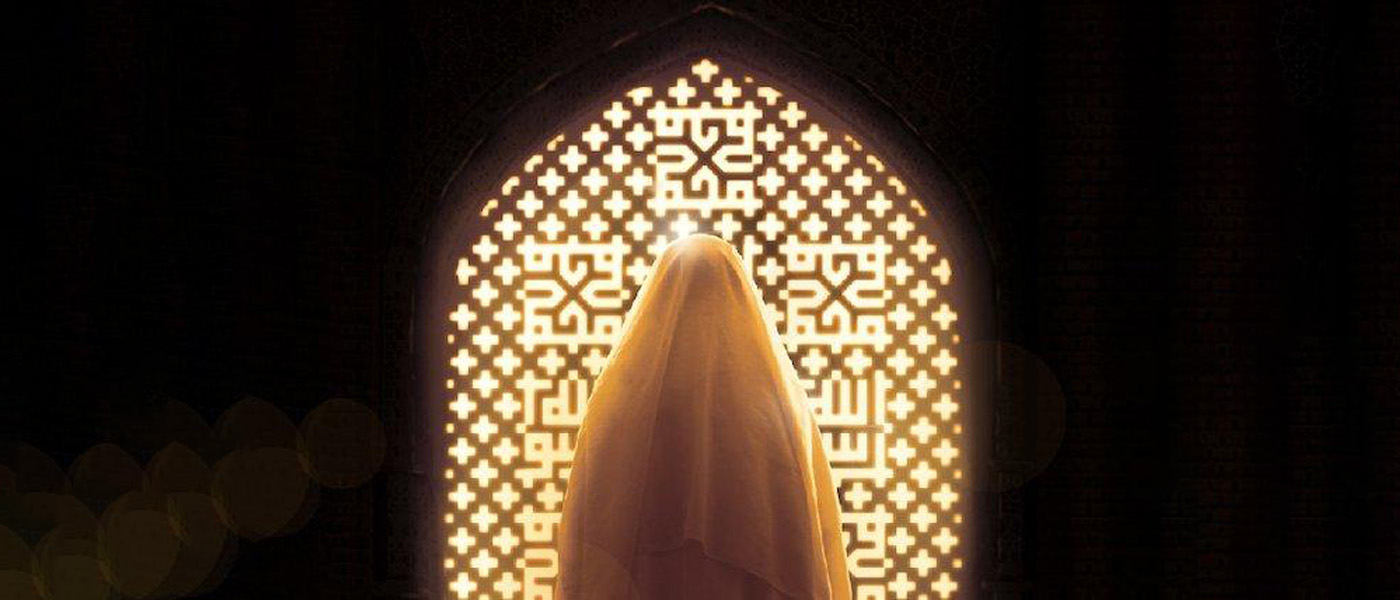
Khadijah, One of the Best Women of Islamic Humanity
The first days of Islam were very difficult days for the Prophet (PBUH&HP) because he did not have many followers and the infidels could conspire for the Prophet (PBUH&HP) more easily. They even attacked his house to assassinate the Prophet (PBUH&HP), but thanks to Allah, this conspiracy was in vain. But in these difficult days, the Prophet (PBUH&HP) had very valuable companions with him, one of these precious followers was the wife of the Prophet, Lady Khadijah (AS). Now we want to know more about the Prophet's wife and her services to Islam and Muslim women.
A short identity of Lady Khadijah (AS)
Lady Khadijah (AS) was from the Quraysh tribe. Her father was Khuwaylid and her mother was Fatima, daughter of Zaydeh, both of whom were among the most rooted and noble Arab families in the Hejaz. Khuwaylid was the eldest of his tribe during the pre-Islamic period. Before the advent of Islam, Khadijah was considered one of the most prominent Quraysh women, so much so that she was called by the Lady of Quraysh women.
Although she was a beautiful and wealthy woman and had a lot of suitors, she did not accept them and started a business with the big amount of money she had. Until Prophet’s uncle asked his nephew to work for Khadijah like his other relatives, and he went to the Sham business on his behalf, and so it was continued. The decency of Muhammad (PBUH&HP) and his talent, merit, distinguished personality, and reputation for fiduciary duty made him famous in particular and in general that he was called "Muhammad Amin" *. This news and reports made Khadijah fascinated by her lineage, merit, character, and liking.
The first Muslim woman
Lady Khadijah (AS) was the first Muslim woman in promoting Islamic culture and as a role model of a Muslim woman has played a great role and many women have learned lessons from her practical training. She was so faithful that even the Prophet (PBUH&HP) said this about her in various narrations, we will read some of them to know more about her great role and practical lessons:
1) The best women in the world are Khadijah and Maryam, the daughter of Imran (1)
2) One day, the Messenger of God (PBUH&HP) drew four lines. Then he asked: Do you know what these lines are? People said: God and His Messenger are more knowledgeable. The Prophet (PBUH&HP) said: The best women of Paradise are Maryam, the daughter of Imran, Khadijah, the daughter of Khuwaylid, and Fatimah, the daughter of Muhammad (peace be upon her), and Asiya, the wife of Pharaoh. (2)
Lady Khadijah (AS) Services to Islam
In 24 years of living together with the Holy Prophet of Islam (PBUH&HP), Khadijah performed many services for the religion of Islam. The financial, spiritual, and emotional support of the Prophet (PBUH&HP), the acknowledgment of the Prophet in a time when no one approved of him, and his help against the persecution of the polytheists are some of these valuable services. After marrying the Prophet (PBUH&HP), Khadijah gave her property to him so that he could spend it however he wanted. The Holy Prophet of Islam says in this regard: "No wealth was as useful to me as the wealth of Khadijah."(3)
Khadijah, this noble lady not only believed in the message of the Prophet from the bottom of her heart but also helped him in the face of hardships and denials of polytheists and ill-wishers. While she was alive, she did not allow the persecution of the polytheists to be severe on the Messenger of Allah (PBUH&HP). When the Messenger of Allah (PBUH&HP) came home with a load of calamity and sorrow, Khadijah comforted him and removed the worry from his mind. The property of Khadijah was used as a suitable tool in the service of Islam and its development from the very beginning. Interestingly, the last part of Khadijah’s property was spent by Imam Ali (AS) during his emigration trip to Medina. Most Muslims traveled with Khadija's property. The last of them was a caravan led by Imam Ali (AS). (4)
She was also the mother of Fatima (AS), from whom the generation of Imams was born. Imam Sadigh (AS) said: "When Khadijah (AS) chose the Holy Prophet (PBUH&HP) as her husband, the women of Mecca turned away from her because of enmity. Not only did they not greet Khadijah; they even prevented other women from visiting her. In this way, a strange terror overwhelmed Khadijah.
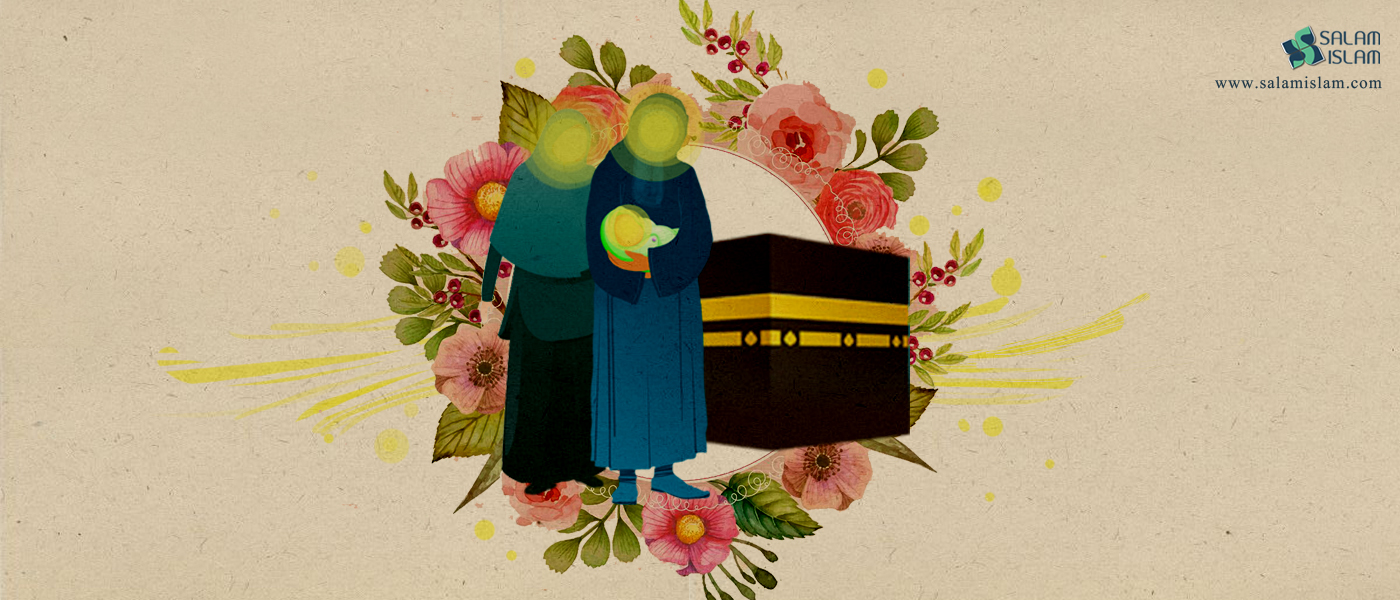
Of course, she was more afraid of the Prophet (PBUH&HP) to be harmed than herself. When Khadijah became pregnant with Fatima, Fatima spoke to her in her mother's womb and advised her to be patient, but Khadijah kept this secret from the Prophet until one day she entered and heard that Khadijah was talking with someone. He looked around; but he did not see anyone, he asked: O Khadijah! Who are you talking to? Khadijah, in response, told that she was talking to the child she had in her womb, Prophet (PBUH&HP) replied: “Gabriel informed that this is a girl child. She and her descendants are pure, blessed, and Allah will create my descendants from him. From his generation are born the Imams of the religion and the Almighty, after breaking the revelation, makes them his successors on earth.” (5)
Conclusion:
The position and role of lady Khadijah (AS) in the most difficult period of the history of Islam this affair is common knowledge. she played an important role in establishing and spreading Islam during the Besat** period with her material and spiritual support of the Holy Prophet (PBUH). She is a role model for men and women in society because she raised many human values and perfections inside herself. She gave all his wealth, economic facilities, and existence in the way of satisfaction of Allah and also with the spiritual, psychological, and social support for her husband, Prophet (PBUH), in promoting Islam and advancing its goals, thus making his name as a real and true model for a Muslim woman. She died in the tenth year of the Besat and shortly after the death of the Prophet’s uncle, Abu Talib (AS). Muslim women can learn from the practical lessons of lady Khadija (AS) throughout the history of Islam to be behind their husbands in any case and not to withhold any support from him.
References:
- Al Umdah Ibn Tariq (page 405)
- Sirat Ibn Hisham (first Volume - Page 168)
- Encyclopedia of Shia (second volume – page 47)
- Encyclopedia of Shia (second volume – page 49)
- Encyclopedia of Shia (third volume – page 46)
* Amin means a trustee and someone who is trusted to keep the treasure of others while he does not betray or abuse the trust others gave him.
** Besat refers to the election of Prophet Mohammad (PBUHHP) as a prophet and the beginning of his mission
Share This Article

Hijab in Islam : the Real Meaning
When talking about Hijab in Islam , the first impression that comes to mind is a cloth covering certain parts of women’s body. But is this the real meaning of the Hijab? Is that all Islam intended by ordering to wear Hijab; covering women’s bodies? This is surely one of the functions but is not the whole thing.
Hijab in Islam concerns men as much as women. Indeed, by introducing Hijab, Islam aims to set out a framework on how we dress, how we look, and how we interact in society. This also originates from a superior objective: limiting the human desires towards the opposite gender to one’s private life in the form of a legal marriage and letting the society focus on work and productivity [1].
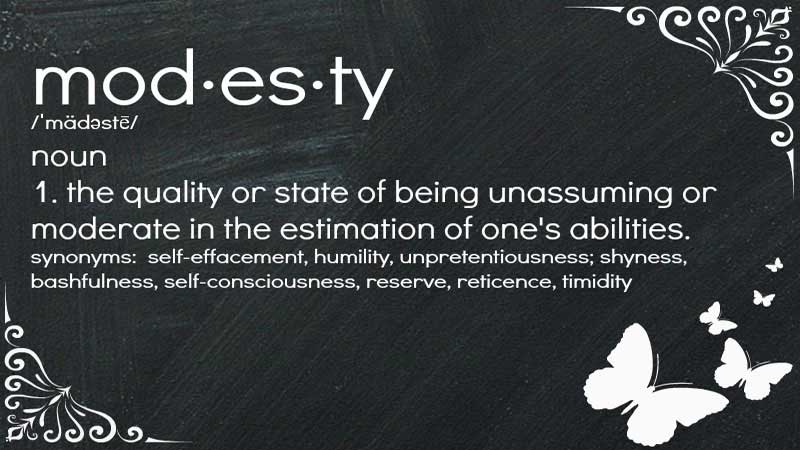
The Islamic Dress Codes
Islam requires both women and men to dress simply, modestly, and with dignity. Simply said, one should not dress in a way to draw the attention of the others to their physical features. Islam has forbidden wearing the clothing that attracts the attention of the general public, making its wearer known for it because of the type of the fabric, its color, model or because of being worn and unclean [1]; and this applies to women and men both.
According to the Holy Quran, covering and Hijab of body dates back to the time of Adam and Eve in the Garden of Eden: “So when they tasted of the tree, their nakedness became exposed to them, and they began to stitch over themselves with the leaves of paradise.” (7:22). This demonstrates that following the standards of modesty is innate in all human beings, and so do the Islamic dress codes.
Since modesty as the reason to wear the Hijab in Islam is a subjective term, the Quran and Sunnah [i] have laid out the bare minimum to prevent any confusion. The absolute minimum covering in Islam set for men is loose and unrevealing clothing from his navel to his knee [1]. Men are not allowed to wear gold jewelry, silk clothing, or adornments that are considered feminine [1].
Muslim women, like men, are not permitted to wear tight and revealing clothing; especially the ones showing the details of their body. The clothing should cover their hair and body, but covering the face and the hands, from the wrist to the fingers, is not mandated [2]. It is also forbidden for women to wear strong perfume, heavy make-up, or such jewelry that makes a jingle noise with movement and attracts the attention of others, especially strange men. They should not reveal their ornament either. These all let the Muslim women to be recognized in society by the content of their character rather than by their physical appearance and do force men to cease objectifying women.
It should be noted that besides these dress codes, Islam has mandated us to wear beautiful and clean clothes; especially when dealing with others and during prayers: “O Children of Adam! Put on your adornment on every occasion of prayer” (7:31). This also should be considered as much as the clothing rules.
Controlling the Glance as A Part of Hijab in Islam
Islamic precept has introduced a particular way of decency by presenting the concept of controlling the gaze. It is stated in the Quran that: “Tell the faithful men to cast down their looks” (24:30); and: “And tell the faithful women to cast down their looks” (24:31). It means that women and men are both required to keep their gazes downcast unless permitted [ii].
Imam Sadiq (AS) said: “A glance is a poisoned arrow from the arrows of Satan. He who refrains from it [glancing] for the sake of Allah and nothing other than Him, Allah will grant him a faith, the taste of which he will experience.” [3].
Keeping the glance downcast prevents men from lustful thoughts when looking at any woman other than their wife and allows women to protect themselves and guard their modesty. If one truly believes that God is present everywhere and at every second, He sees all he does [iii], and “He knows the treachery of the eyes, and what the breasts hide.” (40:19), he controls his glance in public and in private.
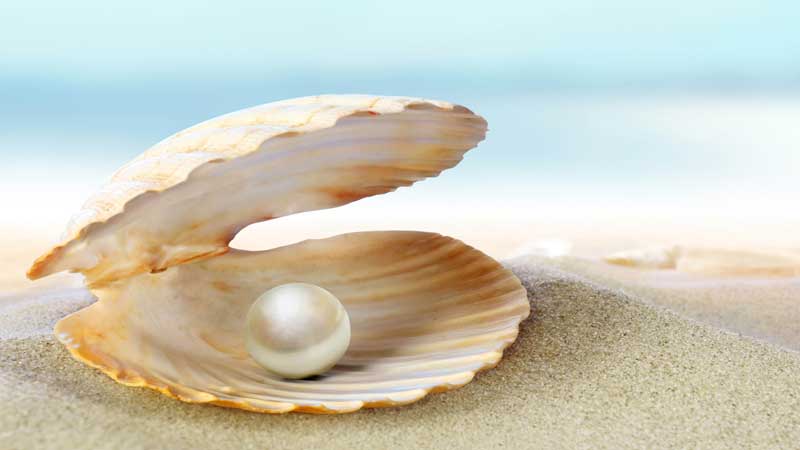
Limits to Talking to the Opposite Gender
As society is composed of women and men, their social interactions and communications are inevitable. Emphasizing the concept of decency, Islam has special guidelines for the interactions between members of the opposite sex. Islam, as the religion of moderation [iv] [4], does not allow a free relation, neither severely restricts this interaction, but allows women and men to communicate in good intention [5]. This means that the speech should be direct and both sides should consider the human identity of the other person, not the gender.
Allah says in the Quran: “wives of the Prophet! You are not like other women: if you are wary [of Allah], do not be complaisant in your speech, lest he in whose heart is a sickness should aspire; speak honorable words.” (33:32).
Although this verse of the Quran addresses the wives of the Prophet Muhammad (PBUH&HP) who were mostly at the old age, it also applies to all other women especially young ones [6]. This requires Muslims, specifically women, to use a serious tone of voice and expression when talking to the opposite gender. Otherwise, their sweet words might seduce the person whose heart might be diseased with lust.
Notes:
[i] The lifestyle and sayings of Prophet Muhammad (PBUH)
[ii] e.g., in the case that a witness looks at the face of a non-mahram to recognize him/her.
[iii] “does he not know that Allah sees [him]?” (96:14)
[iv] “Thus We have made you a middle nation that you may be witnesses to the people” (2:143)
References:
- HIjab in Islam
- A. Aroussi Howayzi, "Tafsir Noor al-Thaqalayn", vol. 3/589, T. 105.
- M. B. Majlesi, "Bihar al-Anwar", vol. 101, p. 40.
- N. Makarem Shirazi, "Tafsir Nemooneh", vol. 1, p. 483.
- Hijab in Holy Quran
- M. Qara'ati, "Tafsir Surah al Ahzab."
Read More
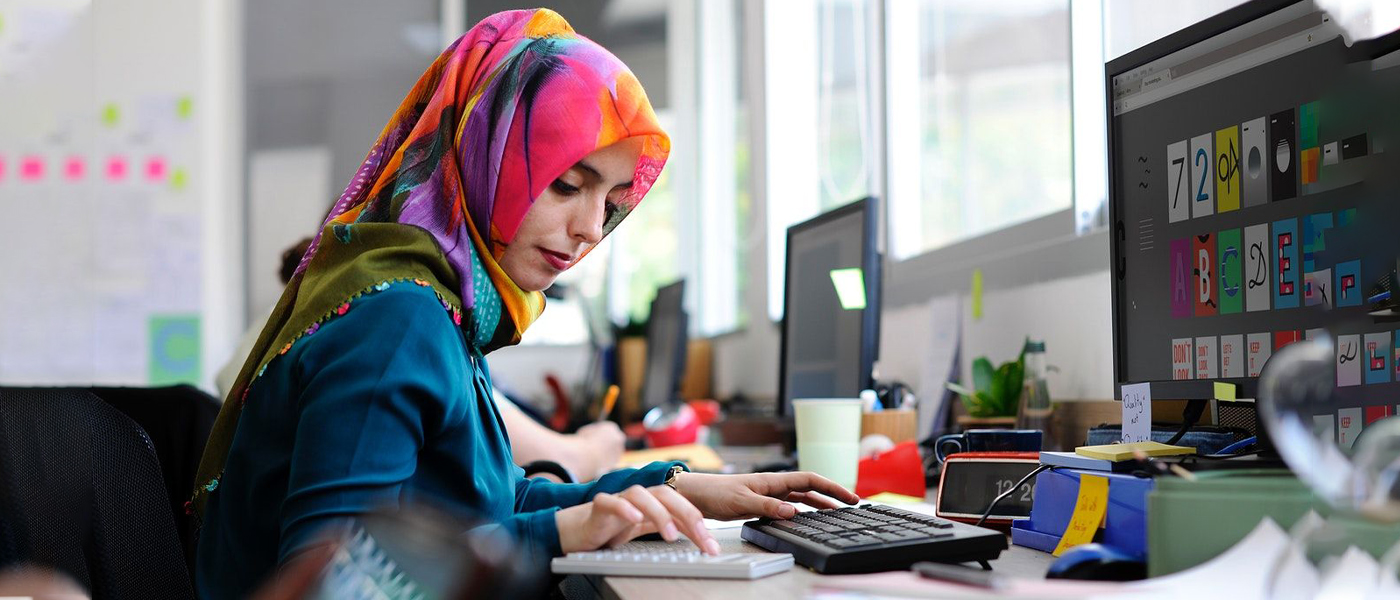
What Careers Can a Hijab Wearing Muslim Woman Choose?
Living as a Muslim woman in any country, be it Canada, the USA, England, or Australia, you might need to find a job. Either you are single or married, graduate or undergraduate, a mother or a wife, having a job might be necessary for you.
However, the moment you decide to go for a job, fear and anxiety rush into your mind; “What if they do not hire me because of my Hijab?”; “Do I have to find somewhere with Muslim personnel?” or even “ What if they disrespect me in front of other colleagues? What shall I do?”
Well, here we are going to discuss some of the issues and matters related to employed or to-be-employed Muslim Women.
1. Does A Muslim Woman Have any Limitations in Choosing a Career?
As a Muslim woman, you are free to take any job you want, be it a designer, a manager, a teacher, etc. but before choosing that job, you need to consider a few points.
You are a Muslim, and you have chosen to be a Muslim
You have faith in whatever you do, and you need to follow the Commands of Allah to be the person He wants. So, never give something greater away for the sake of something lesser. Allah has promised to help us if we believe in Him with all our hearts, and he will not leave us alone.
Have faith in Allah and confidence in yourself. Be who you are: A Muslim Woman!
“Indeed, those who have said, "Our Lord is Allah " and then remained on a right course - the angels will descend upon them, [saying], "Do not fear and do not grieve but receive good tidings of Paradise, which you were promised.” Quran (41:30)
Your Family Comes First
You may choose to work for many reasons, be it financial problems or your interest in a particular career or simply to express yourself somehow to the world. Whatever the reason, you shouldn’t hurt yourself with the job you choose to take, either mentally or physically. You might be even hurting your family (your kids and your husband) or even your parents. The first priority is family, and will always be. So, try to choose a job that does not harm you nor your family. Imam Sajjad (AS) states that each of our organs has a right. For instance, it’s your ear’s right to hear what is good for you in this world and the afterlife and it’s your eyes’ right to see good things and be closed from anything that Allah has wanted us not to see ( scenes of torture, eroticism, slaughter, intercourse, etc.,) [1]. As your body has a right, so does your family. Remember to preserve theirs before choosing any careers.
Imagine you have chosen to be a volleyball coach. You have already done surgery on your knee, and your doctor has told you to take good care of it. Both logic and Islam say that being a coach hurts your knee, and that can’t be a suitable job for you.
Be Cautious About Your Work Relationships with Men
Men and women work together in most workplaces, and that is a fact. There Is a thing that each Muslim woman needs to keep in mind, and that is to be cautious of those relationships and does not let them take the form of irregular man-woman interactions. They need to be neither cold and disrespectful nor arouse emotional or sexual attractions [2]. Allah tells us how to control that:
“Tell the faithful men to cast down their looks and to guard their private parts. That is more decent for them. Allah is indeed well aware of what they do. And tell the faithful women to cast down their looks and to guard their private parts, and not to display their charms, beyond what is [acceptably] visible, and let them draw their scarfs over their bosoms …” Quran (24: 30-31).
“O wives of the Prophet, you are not like anyone among women. If you fear Allah, then do not be soft in speech [to men], lest he in whose heart is disease should covet, but speak with appropriate speech.” Quran (33:32)
2. Can I Take off My Hijab at Work?
As far as we all know, we are only allowed to take off our hijab in front of other women or men who are among the Mahram men of our family. So, you may be allowed to take off your hijab only if you are working with other women or Mahram men of your family. Some may want to make others gradually accept their chosen faith. But, the fact is that you are a Muslim, and you need others to welcome you, respect, and value your talents and hard efforts. So, let others see who you are and the reality of your Faith. That would bring you more of a trust and confidence.
Careers and professions play an essential role in our everyday lives, and at times, they are even hard to live without. At the same time, women are active members of each achieving society. Islam neither forbids them from social activities nor limits them to stay at home and do daily chores. It just asks them to be careful and watchful about their own health, safety, and femininity and also beware of what happens in their interactions and communications.
References:
- Peiravi, Ali (1992) the Treatise on Rights by Imam Sajjad (AS)
- Nikzad, Abbas (2005) Practical Women Studies, Vol 25
Read More

